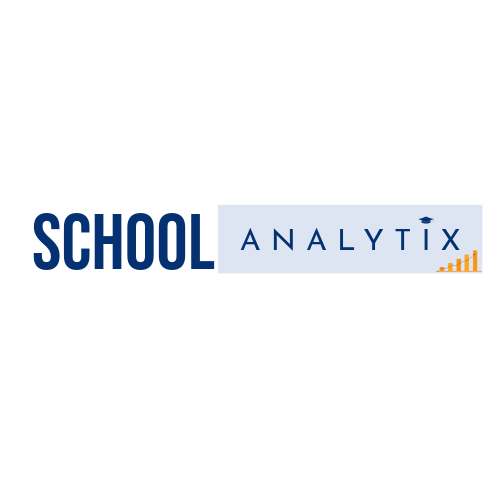Education is not one-size-fits-all, yet traditional classroom settings often struggle to accommodate the diverse needs, interests, and learning styles of individual students. Personalizing learning experiences—tailoring instruction, content, and resources to meet each student’s unique needs and preferences—holds immense promise for enhancing student engagement, motivation, and academic achievement. In this article, we explore the transformative potential of data analytics in personalizing learning experiences, enabling educators to deliver targeted interventions and foster a culture of individualized learning.
The Promise of Personalized Learning
Personalized learning emphasizes student-centered approaches that empower learners to take ownership of their education, pursue their interests, and progress at their own pace. By leveraging data analytics, educators can:
Understand Student Needs: Analyze student performance data, learning preferences, and socio-emotional factors to gain insights into each student’s strengths, challenges, and learning goals.
Adapt Instruction: Tailor instructional strategies, content delivery, and assessment methods to accommodate diverse learning styles, abilities, and interests.
Provide Timely Feedback: Utilize real-time data analytics to provide immediate feedback, identify areas for improvement, and offer targeted support to students as they navigate their learning journey.
Facilitate Differentiation: Create personalized learning pathways that allow students to progress through curriculum materials at their own pace, access enrichment opportunities, and receive additional support as needed.
Promote Student Agency: Empower students to make choices about their learning experiences, set goals, and track their progress towards mastery.
Leveraging Data Analytics in Personalized Learning
Data analytics serves as a powerful tool for personalizing learning experiences, enabling educators to gather, analyze, and act upon a wealth of information about student performance, preferences, and behaviors. Key strategies for leveraging data analytics in personalized learning include:
Learning Analytics: Utilize learning management systems (LMS) and educational technology platforms to collect data on student interactions with digital learning resources, including time spent on tasks, completion rates, and engagement levels.
Assessment Data: Analyze student assessment data, including formative and summative assessments, to identify patterns of strengths and weaknesses, inform instructional decision-making, and adjust learning objectives accordingly.
Adaptive Learning Technologies: Implement adaptive learning technologies that leverage algorithms and machine learning to deliver personalized instruction, adapt content to individual learner needs, and provide immediate feedback.
Student Profiles: Develop comprehensive student profiles that encompass academic performance metrics, demographic information, socio-emotional factors, and learning preferences to inform personalized learning plans.
Predictive Analytics: Utilize predictive modeling techniques to forecast student outcomes, anticipate learning needs, and proactively intervene to support students at risk of academic underachievement or disengagement.
Case Studies and Best Practices
Several case studies and best practices illustrate the successful implementation of data-driven personalized learning initiatives:
Khan Academy: Khan Academy utilizes data analytics to provide personalized learning experiences for students, offering adaptive practice exercises, instructional videos, and real-time feedback tailored to individual learning needs.
Summit Learning: Summit Learning, a personalized learning platform, incorporates data analytics to track student progress, set individualized learning goals, and facilitate student-teacher collaboration in setting and monitoring academic objectives.
DreamBox Learning: DreamBox Learning employs data analytics to deliver adaptive math instruction, assessing student mastery of mathematical concepts and providing personalized lessons aligned with each student’s learning trajectory.
Coursera: Coursera uses data analytics to analyze learner behavior, preferences, and performance on online courses, enabling instructors to optimize course content, delivery methods, and assessment strategies to enhance student engagement and learning outcomes.
Challenges and Considerations
While data analytics holds immense potential for personalizing learning experiences, educators must navigate several challenges and considerations:
Data Privacy and Security: Safeguarding student data privacy and ensuring compliance with data protection regulations is essential when collecting, storing, and analyzing sensitive educational information.
Equity and Access: Addressing disparities in access to technology, internet connectivity, and digital literacy skills is critical to ensure that all students can benefit from personalized learning initiatives.
Teacher Professional Development: Providing educators with the necessary training, support, and resources to effectively utilize data analytics and integrate personalized learning strategies into their instructional practices.
Ethical Use of Data: Upholding ethical principles and responsible practices in the collection, analysis, and interpretation of student data, including transparency, accountability, and informed consent.
Balancing Automation with Human Judgment: Striking the right balance between automated algorithms and human expertise in personalizing learning experiences, recognizing the value of educator insights, intuition, and empathy in the learning process.
Conclusion
Personalizing learning experiences through data analytics represents a paradigm shift in education, enabling educators to meet the unique needs and preferences of every student. By leveraging data-driven insights, educators can create dynamic, engaging, and inclusive learning environments that foster student agency, mastery, and lifelong learning. However, realizing the full potential of personalized learning requires a concerted effort to address challenges related to data privacy, equity, teacher professional development, and ethical considerations. As we continue to harness the power of data analytics in education, we can unlock new possibilities for personalized learning and empower every student to thrive in the 21st century.
In this article, we’ve explored the transformative potential of leveraging data analytics to personalize learning experiences for students. By embracing personalized learning approaches and leveraging data-driven insights, educators can create dynamic, engaging, and inclusive learning environments that empower every student to succeed. As we continue to innovate and evolve in the field of education, personalized learning holds immense promise for shaping the future of teaching and learning.

